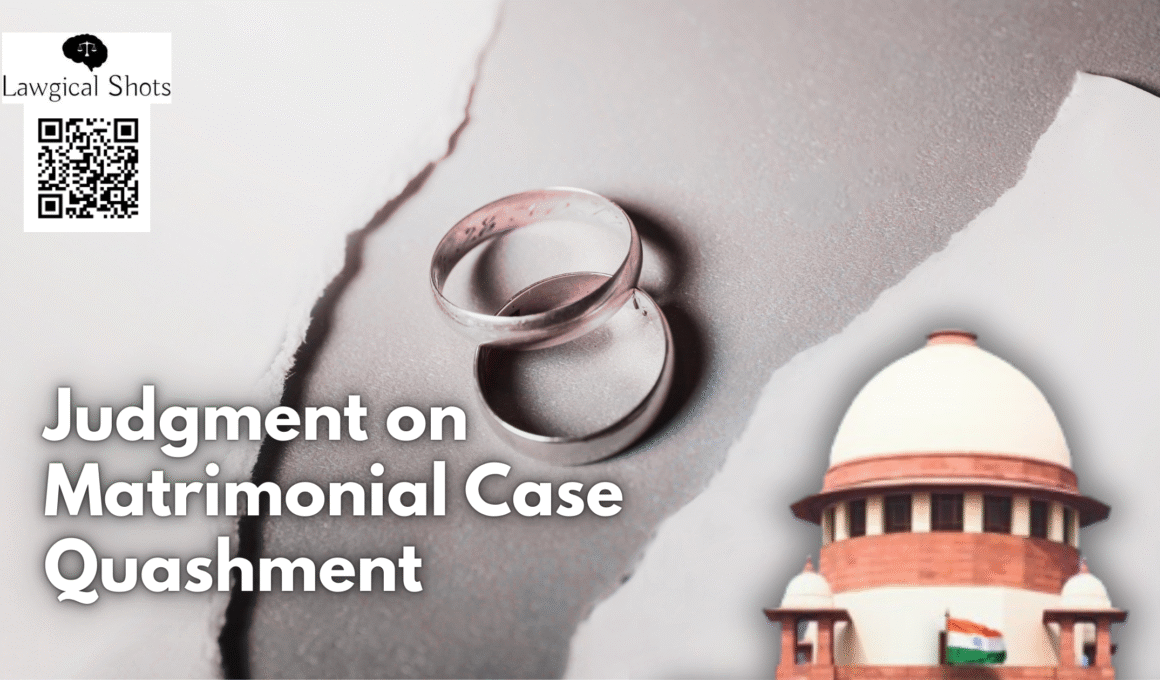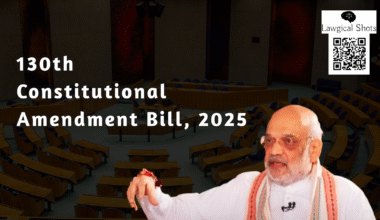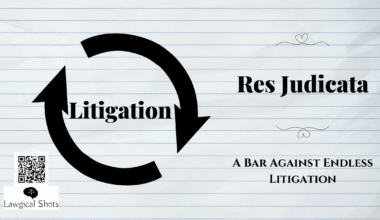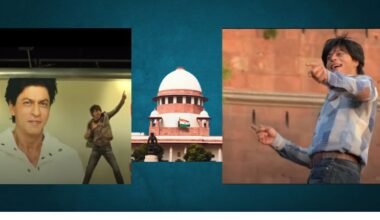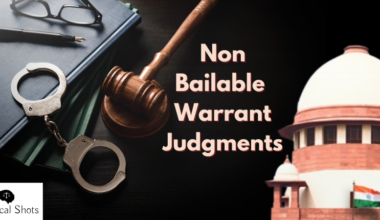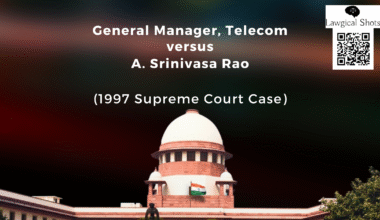Today, let us comprehend a matrimonial case which sparked from criminal charges against a husband and in-laws. After a mutual consent divorce, the wife dropped all claims and filed a quashing petition for the FIR, but the High Court held firm over claims of child victimisation. Thus, relief was sought under Article 142’s sweeping powers to the Supreme Court.
This landmark ruling underscored the Judiciary’s vital role in ending prolonged personal conflicts and restoring harmony. By quashing the case, the Court favoured resolution rather than pressing upon dead conflicts under the garb of matrimonial cases turned criminal law matters.
Factual Background
The couple got married in 2018. However, due to marital discords, the wife left her matrimonial home along with a daughter from previous marriage. The dispute followed with several cases, but settlement and mutual consent divorce led to amicable outcome. However, the High Court refused to quash the cases since minor allegations also pertained to victimisation of minor daughter.
Issues Framed
- Whether the Supreme Court, in exercise of its extraordinary jurisdiction under Article 142 of the Constitution, ought to quash criminal proceedings arising out of matrimonial discord when the parties have arrived at an amicable settlement?
- Whether allegations pertaining to the victimisation of a child prevent the quashing of criminal proceedings in light of an out-of-court settlement and subsequent divorce by mutual consent?
Legal Discussion on Matrimonial Case Quashed
- Legal provisions involved- The provisions involved in the above are as under Sections 323 (voluntarily causing hurt), 406 (criminal breach of trust), 498-A (cruelty by husband/relatives), and 506 (criminal intimidation) of the Indian Penal Code.
- Abuse of Process and Misuse – The Supreme Court re-capitulated that criminal law is not an instrument for long-term personal harassment and that it should not be used as such. In matrimonial arguments, Judicial experts have acknowledged a frequent misuse of criminal statutes to harass family members, particularly those related to the husband.
- Family Member Protection: in the Apex Court mentioned its decision in Dara Lakshmi Narayana vs. State of Telangana, wherein it was held that family members should not be involved in criminal proceedings just because of marital strife that is either directly or indirectly related to them.
- Impact of Mutual Divorce and Settlement: The cases of Mala Kar v. State of Uttarakhand and Arun Jain vs. State of the National Capital Territory of Delhi brought to light the idea that prolonged criminal proceedings were abuse since divorce was finalized by mutual consent and the parties had completely resolved their differences.
- Utilization of Article 142 of the Constitution: Article 142 gives the Supreme Court the authority to issue any ruling or directive required to provide “complete justice.” When the parties themselves decided not to pursue the case further, the Court used its extraordinary competence to end the criminal proceedings in the interest of justice and closure.
- Child Victimization claims: In addition, the Supreme Court went on with quashing despite the High Court citing child victimization claims.
- Guidelines for Quashing Criminal Proceedings: The Court upheld the guidelines established in Gian Singh v. State of Punjab and Naushey Ali v. State of U.P., concluding that quashing is appropriate in situations where pursuing charges would be pointless, cause harassment, or result in no realistic chance of conviction after a settlement.
Therefore, the key legal takeaway from Navneesh Aggarwal v. State is that the Judiciary must make sure criminal proceedings do not prolong harassment or act as tools of protracted conflict in matrimonial disputes settled by mutual consent and settlement. It also has the authority to stop such proceedings under Article 142 for just and fair proceedings.
Judgment in Navneesh Aggarwal v. State
- Settlement and Divorce: The Court observed that the marriage had ended by mutual consent, the parties had entered into a compromise/settlement, all other litigations were withdrawn, and the wife had no objection to quashing.
- Role of Article 142: Emphasized that Article 142 empowers the Supreme Court to do complete justice, including quashment of criminal proceedings where continuation would serve no purpose, especially in private disputes post-settlement.
- Rationale:
- No meaningful purpose would be served by continuing the proceedings where the foundational relationship has ended, and parties have moved on.Prosecution in such circumstances results in “abuse of process” and subjects the accused (especially family members) to unnecessary harassment.
- Protection of individual justice must be balanced with the need to avoid misuse of criminal law for vindictive litigation post-settlement.
- Victimisation Allegations: The Court highlighted that the child was aware of the settlement arrived, and that the conflict was already done with.
- Quashing Orders: The Supreme Court invoked Article 142, set aside the High Court’s order, and quashed FIR, the chargesheet, and all pending proceedings arising from it.
Concluding Principle
The Supreme Court reaffirmed that in marital disputes resolved by mutual consent/divorce and settlement, criminal law is not to be wielded as a tool for continued harassment, and its powers under Article 142 can be invoked to quash such proceedings, provided the allegations do not shock the conscience of the court or involve grave offences affecting society at large.
The Supreme Court judgment on matrimonial case quashment has been analysed by our intern, Ms Manya Mishra. She has been assisting the team in bringing informational legal blogs.
